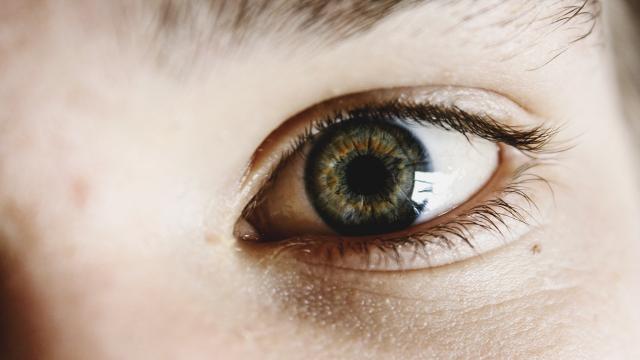People who wear contact lenses are often warned to properly clean their reusable contacts. A new study published Friday provides a sober reminder of why those warnings exist. Since 2011, it found, an outbreak of a rare infection that can cause blindness has been spreading among contact lens wearers in England, often thanks to poor hygiene.
The infection is caused by single-celled amoebas belonging to the Acanthamoeba genus, which gives its name to the disease: Acanthamoeba keratitis. Unlike influenza or cold viruses, though, these guys are not really looking to infect and sicken people. They prefer to live in the soil or in freshwater, where they can feast on bacteria to their (figurative) hearts’ content. But when these amoebas get into our eyes, they can cause open sores in the cornea that permanently damage our sight.
Acanthamoeba keratitis is rare, but how rare is still debated. We do know that contact lens wearers are at greater risk. Around 85 per cent of estimated cases in the US happen to lens wearers, according to the Centres for Disease Control and Prevention.
In recent years, the authors behind the current study noticed what seemed to be a uptick of cases in South East England. So they decided to look at patient records from Moorfields Eye Hospital, a major hospital in the area that regularly sees cases of Acanthamoeba keratitis. They looked at cases over a 20-year period, from 1986 to 2016.
From 2000 to 2003, there were less than ten cases a year, they found. But starting in 2010, the annual incidence of Acanthamoeba keratitis was three times greater than it was from 2004 to 2009.
Hoping to zero in on the exact cause of the outbreak, they then compared some of these patients to a control group of other contact lens wearers who had visited the hospital. Both groups filled out surveys about how they handled and used their lenses.
The researchers found that infection risk was more than three times higher for respondents who often failed to clean their lenses; who weren’t great hand-washers; who swam or used hot tubs while wearing lenses; or who used a particular disinfectant known as Oxipol to clean their lenses. But none of these factors alone, the authors said, are likely to be the sole reason for the increase in cases.
The findings were published in the British Journal of Ophthalmology,
“This infection is still quite rare, usually affecting 2.5 in 100,000 contact lens users per year in South East England, but it’s largely preventable,” said John Dart, a researcher at the University College London as well as an ophthalmologist at Moorfields Eye Hospital, in a statement.”This increase in cases highlights the need for contact lens users to be aware of the risks.”
There have already been some practical steps taken to stem the outbreak. The manufacturers of a reusable lens brand often used by patients in the study have since stopped using Oxipol as their disinfectant. But there are some things that lens wearers themselves will need to do to avoid the amoeba.
“People who wear reusable contact lenses need to make sure they thoroughly wash and dry their hands before handling contact lenses, and avoid wearing them while swimming, face washing or bathing,” said Dart. “Daily disposable lenses, which eliminate the need for contact lens cases or solutions, may be safer and we are currently analysing our data to establish the risk factors for these.”
It could be worse, though. At least it’s not eye worms.
